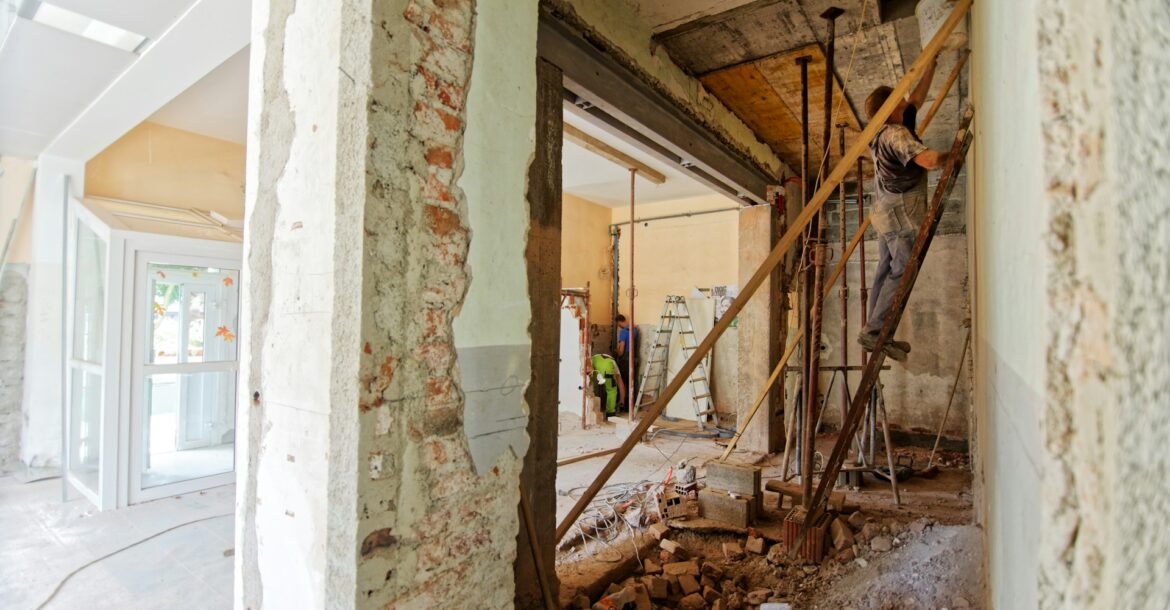Home Improvement
Renovating Your Dream Home Abroad: What You Need to Know
Renovating a property abroad can be an exciting yet challenging endeavor. Whether you’ve purchased a rustic villa in the Italian countryside, a chic apartment in Paris, or a beachfront house in Spain, transforming it into your dream home requires careful planning and execution. Here’s what you need to know to navigate the complexities of renovating an overseas property successfully.
Research and Planning
The first step in any renovation project is thorough research. Understand the local property laws, building regulations, and zoning codes. These can vary significantly from what you’re accustomed to in your home country. Hiring a local architect or a project manager who is familiar with the local regulations can be invaluable. They can guide you through the legalities and help ensure your project complies with all local laws.
Moreover, it’s crucial to research the local market to get an idea of renovation costs. Prices for materials and labor can differ drastically between countries. Factor in potential additional costs such as import taxes for materials, permits, and unforeseen expenses that often arise during renovations.

Budgeting
Creating a realistic budget is essential. Include all potential expenses, from initial purchase and legal fees to renovation costs and contingency funds. It’s advisable to set aside at least 10-20% of your budget for unexpected costs that may arise. Being financially prepared can save you from stress and delays down the line.
Legal Considerations
Navigating the legal aspects of renovating a property abroad can be complex. You will likely need the services of a legal translation agency in the UK to ensure all documents are accurately translated and understood. Misinterpretation of legal documents can lead to significant issues, so professional translation services are a worthwhile investment.
Ensure you have all necessary permits before starting your renovation. Working without the required permits can result in hefty fines and delays. A local legal advisor or real estate agent can help you obtain the necessary paperwork and navigate the local bureaucracy.
Hiring Local Contractors
Hiring local contractors can be beneficial as they understand the local building codes and have established relationships with suppliers. However, language barriers can pose a challenge. To mitigate this, consider hiring a bilingual project manager or a contractor who speaks your language. Clear communication is vital to ensure your vision is accurately executed.
It’s also wise to check the contractor’s credentials, references, and reviews. Verify their experience with similar projects and inspect some of their completed work if possible. Contracts should be detailed, outlining the scope of work, timelines, payment schedules, and penalties for delays.

Cultural Differences
Renovating in a different country means adapting to a new culture and way of doing things. Work schedules, holidays, and local customs can affect your renovation timeline. Being flexible and respectful of these differences can help you build a good relationship with your contractors and neighbours.
Managing the Project Remotely
If you’re not living in the country during the renovation, managing the project remotely adds another layer of complexity. Regular communication with your project manager or contractor is crucial. Schedule regular updates via video calls, request progress photos, and make periodic visits if possible. Technology such as project management software can also help you keep track of timelines, budgets, and progress.
Conclusion
Renovating your dream home abroad is a rewarding venture that requires careful planning, budgeting, and management. By understanding the local regulations, hiring reliable professionals, and maintaining clear communication, you can overcome the challenges and transform your overseas property into the home you’ve always envisioned. Remember to seek assistance from a legal translation agency to ensure all legal documents are properly handled. With the right approach, your dream home abroad can become a reality.






